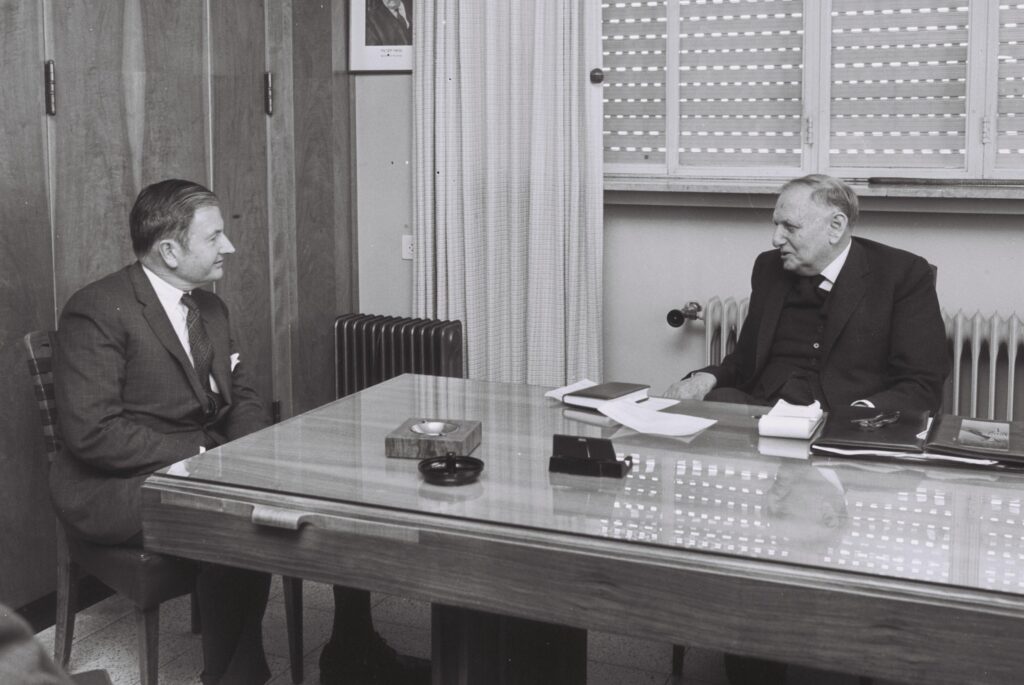August 24, 1954
The Knesset passes the Bank of Israel Law by a vote of 55-0 with 14 abstentions. The law, which becomes effective December 1, 1954, establishes the Bank of Israel as the central financial authority for the country. The bank’s functions, as outlined by the law, are to “administer, regulate and direct the currency system and to regulate and direct the credit and banking system in Israel, in accordance with the economic policy of the government.”
The bank is allocated 10 million pounds as its initial capital. David Horowitz, who had served as the director of the economics department of the Jewish Agency, is appointed the bank’s first governor.
While there was a need to create a central bank with the establishment of the state in May 1948, the matter was postponed because of the War of Independence and other pressing needs. A temporary solution, the Bank Notes Ordinance of 1948, was enacted in August 1948 to issue currency in partnership with the Anglo-Palestine Bank, later renamed Bank Leumi. The Ministry of Finance assumed the other functions that would normally be the responsibility of a central bank.
In March 1951, Finance Minister Eliezer Kaplan appointed a special Committee for the Establishment of a State Bank. In November 1952, the Cabinet discussed the findings of the Committee, then requested the aid of a U.N. expert to help define the final tasks and authorities of the bank.
In March 2010, the Knesset passes a new Bank of Israel Law, which states that the bank’s main objective is price stability.









